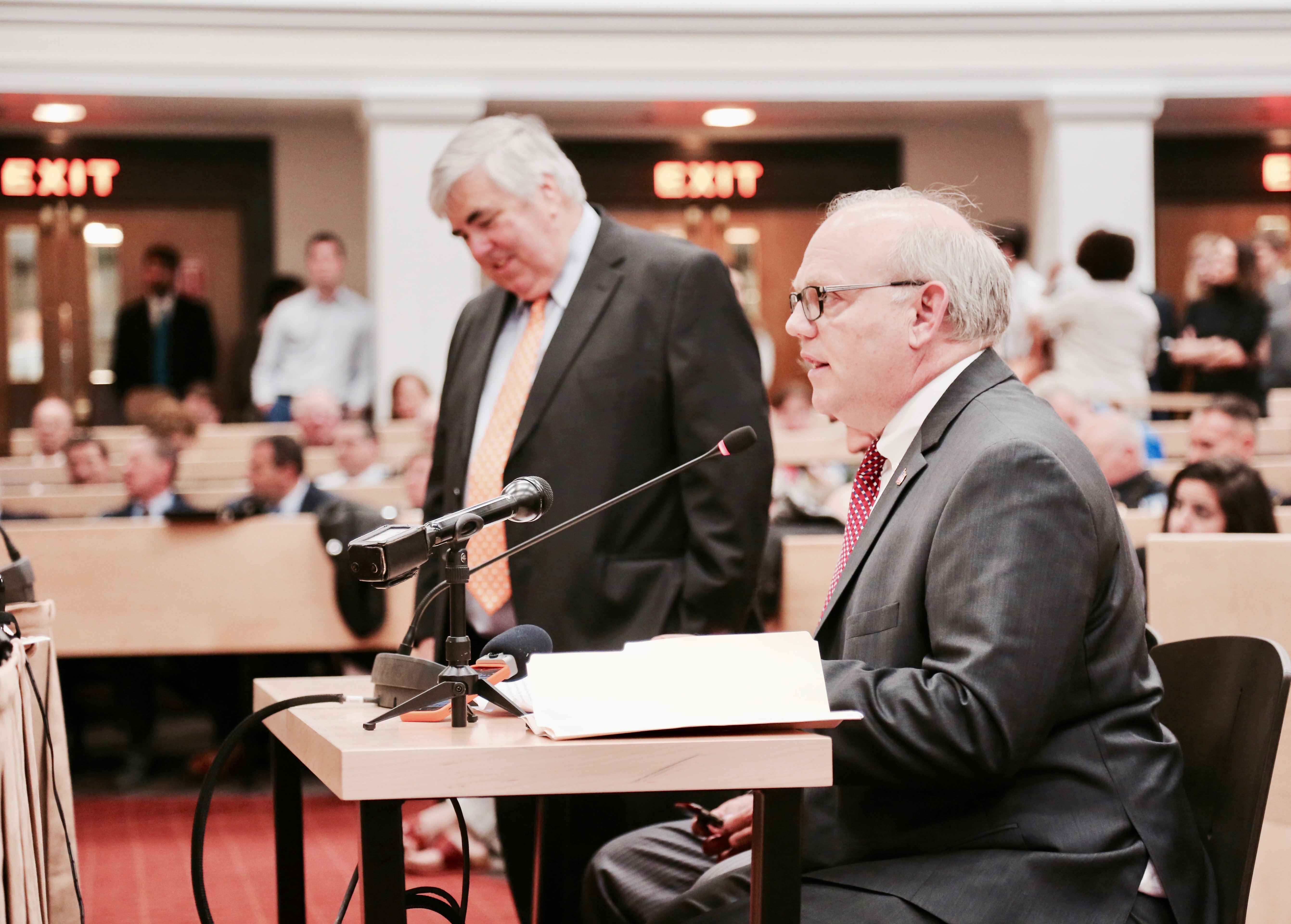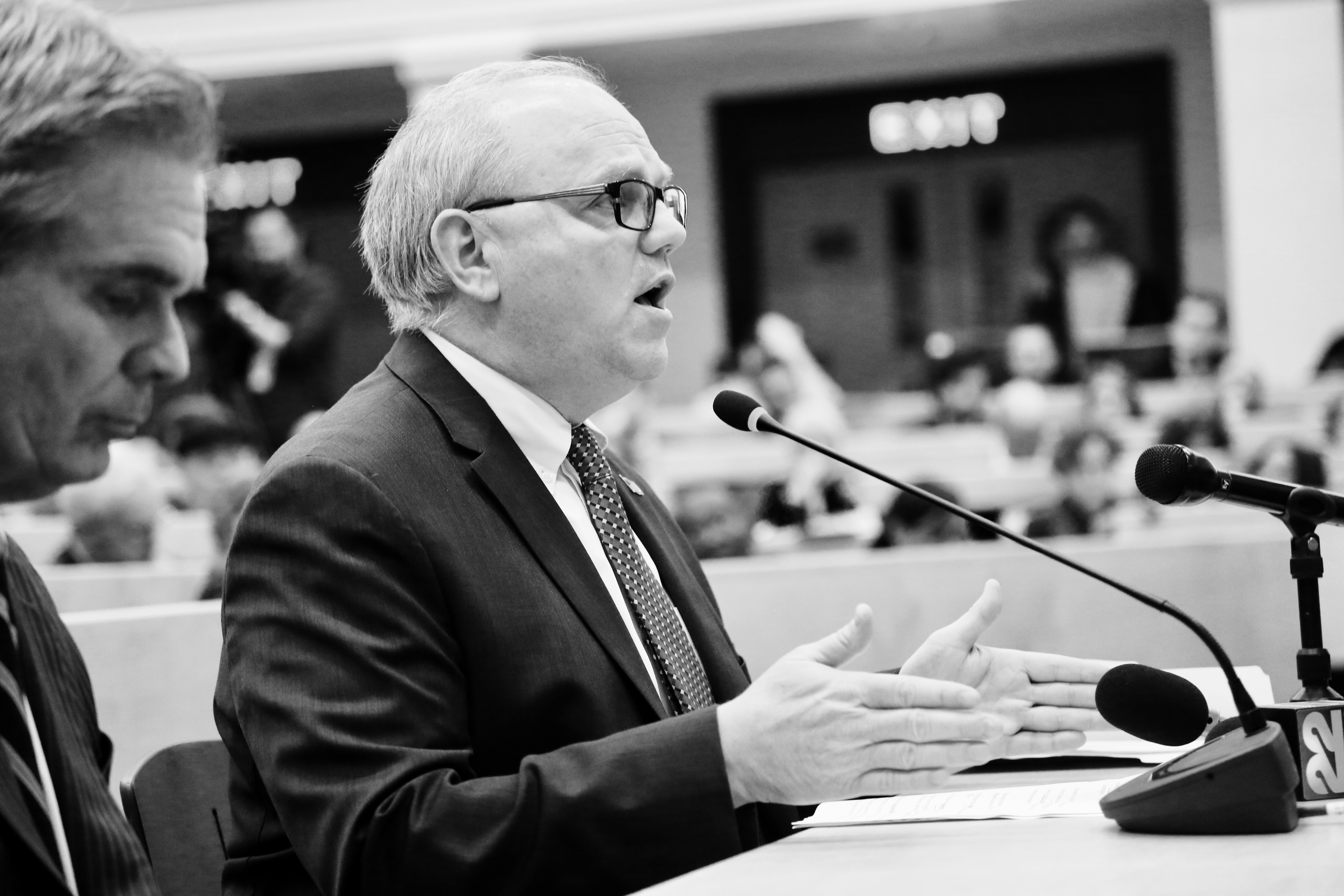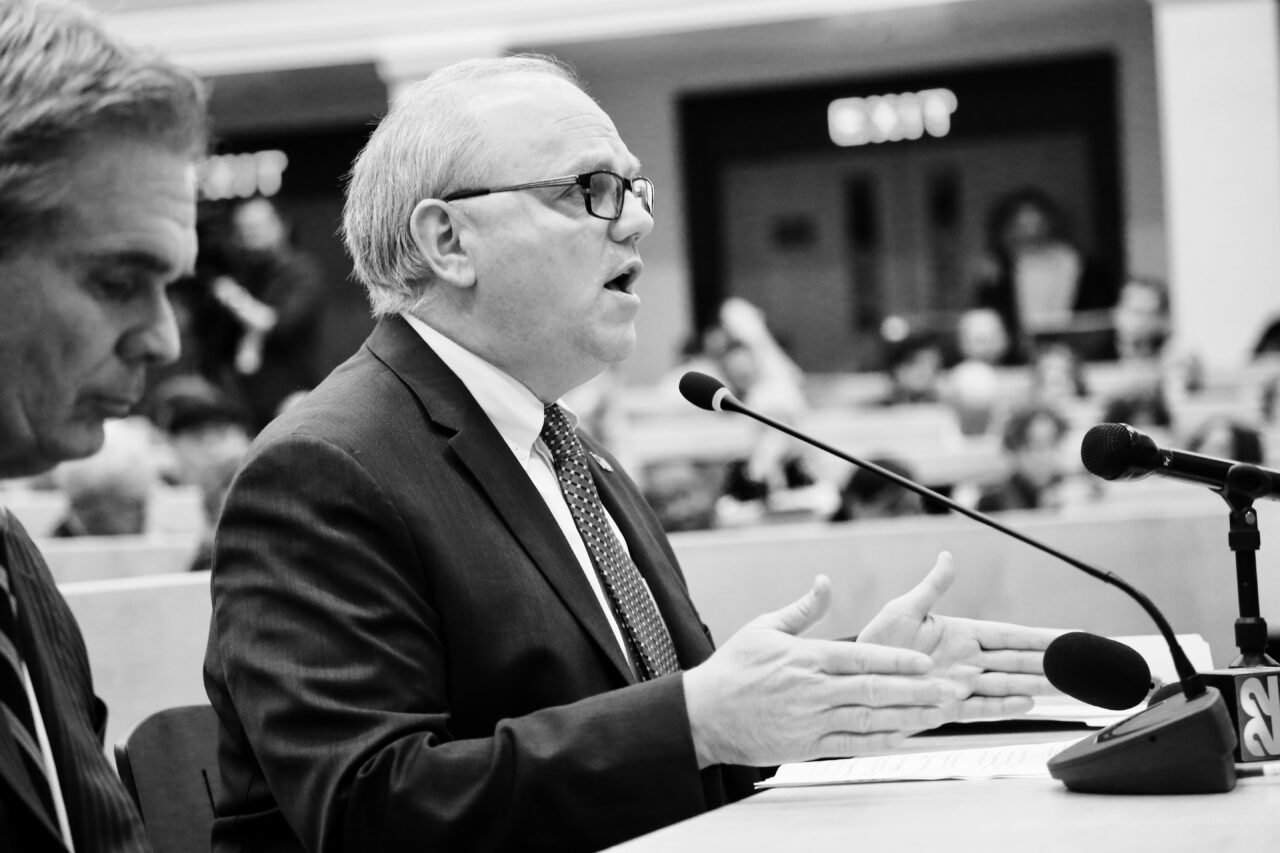
AT MONDAY’S JUDICIARY COMMITTEE HEARING on criminal justice reform legislation, District Attorneys Joseph Early of Worcester County, Timothy Cruz of Plymouth County, and Michael Morrissey of Norfolk County testified in opposition to the elimination of mandatory minimum sentences for drug crimes. Their testimony drew heavily on talking points prepared by the Massachusetts District Attorney’s Association that we have raised concerns about previously. Some of their comments merit further scrutiny.
For example, when it comes to giving incarcerated individuals treatment services to reduce the likelihood that they commit another crime, District Attorney Morrissey said those services don’t exist. “Sorry to say, we just don’t have them. They’re not in place,” he said. “And you’re going to remove the one safe guard that often protects the public on a sentence, on a truth-in-sentencing piece, a mandatory minimum sentence.”
Evidence suggests otherwise. The certainty of a mandatory minimum drug sentence doesn’t deter many people from committing a crime in the first place, and if you want to prevent someone from reoffending, providing them with treatment programs and releasing them earlier represent a much better approach than holding them in prison for a longer period and giving them no treatment.

Morrissey said MassINC’s most recent study on correctional spending was misleading, suggesting the fixed costs associated with running a prison did not decline along with the inmate population. “When MassINC says, ‘well, they should have been saving $17 million in the prison system with the drop in population,’ we all know that that’s really a fallacy because it’s not a person-for-person savings,” Morrissey said. “You have to continue to run those institutions, and that money is not available for the things that you probably should be doing.”
The $17 million estimate is “a person-for-person savings.” It comes directly from a careful analysis by the Vera Institute of variable cost savings that Hampden County actually realized as its inmate population declined. Even more to the point, the MassINC report found that, despite falling inmate populations, correctional budgets increased $72 million above the pace of inflation between FY 2011 and FY 2016. Even if no variable cost savings had been found, certainly there were lost opportunities to increase access to programs with this generous budget growth.
The district attorneys also cited internal figures not available to the public to suggest that those serving mandatory minimum sentences for drug crimes have lengthy criminal histories marked by violence and recidivism. The Sentencing Commission’s data paint a different picture. They show that nearly one-third of defendants sentenced under mandatory minimum drug statutes fall in Criminal History Group A, which means the defendant had either no record or a minor record.
